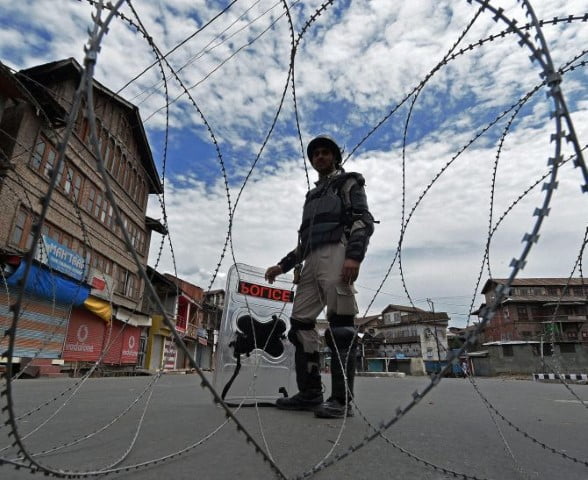‘The Situation In Kashmir Should Not Be Allowed To Simmer’

While the whole country hailed Prime Minister Narendra Modi’s bold move on Jammu and Kashmir by abrogating Articles 370 and 35 A, as promised by his party as soon as India gave him a thumping majority, the clampdown in the state is creating doubts in the minds of even diehard Modi fans. They are wondering whether he has gone wrong somewhere.
It also reminds one of the demonetisation days, an extremely bold move by the government. As days went by and long queues continued in the banks and ATMs, the general masses suffered. Prime Minister kept saying that some amount of suffering had to be accepted for major changes to be brought about in the country.
The precision and professionalism was entirely missing though there was a lot of courage and daring. A number of decisions were being taken in fits and starts. There was no detailed planning, the possible fallout in terms of human agony had not been taken into account.
Just the fact that the majority citizens bowed to all the problems they faced keeping in view the national good and that the Modi government was not punished for it at the hustings rather appreciated, does not mean that demonetisation was implemented properly.
It is a similar situation in the case of Jammu and Kashmir. A good decision but a lot seems to have been left desired on the implementation front. There is no palpable change even after a month.
The Modi government is taking credit and rightly so that not a single person has been killed or a single bullet fired following the abrogation of Articles 370 and 35 A. Kashmiri leaders had predicted that there will be bloodbath if the sacrosanct Articles were touched. Nothing like that was allowed to happen.
But by placing most of the political leadership of Jammu and Kashmir under house arrest, Modi muzzled voices of dissent that could have led to unrest against the move.
The delay in normalisation has led to Pakistan taking advantage of the situation and demanding action against India at the Human Rights Council. India was mentioned on September 9 at the 42nd session of the Human Rights Council of the United Nations.
In her statement, UN High Commissioner for Human Right Michelle Bachelet said, “I am deeply concerned about the impact of recent actions by the Government of India on the human rights of Kashmiris, including restrictions on internet communications and peaceful assembly and the detention of local political leaders and activists.”
She appealed to “ease the current lockdowns or curfews; to ensure people’s access to basic services; and that all due process rights are respected for those who have been detained. It is important that the people of Kashmir are consulted and engaged in any decision-making processes that have an impact on their future.”
India made a strong response but it had been put on the backfoot. India pointed out that it is clearly an internal decision of a sovereign state and it would not accept any other country’s interference. As far as Pakistan’s charges against India were concerned, they could not be given any credibility as they came from a country, which is the “epicenter of global terrorism.”
Indian government claims that the basic necessities of life including electricity, water supply, essential commodities, medicines were being provided to the citizens of Jammu and Kashmir and landline telephone service had been restored and mobile service was being slowly extended.
Indian Government spokesperson has said that 92 percent of Jammu and Kashmir had no restrictions today. But giving a numerical figure of this kind in a fluid situation where restrictions were being relaxed and curfew re-imposed on a day- to-day basis depending on the situation and incidents of stone pelting, armed militancy etc makes no sense.
Normalcy, as people of Jammu and Kashmir have been used to, has not yet returned.
Militant strikes apart, high tension whenever there is large congregation expected for Friday prayers, Eid or Independence Day or any other festival resulting in re imposition of restrictions, heavy mobilisation of para military or Armed Forces, imposition of curfew if required, is not the kind of Jammu and Kashmir one looked forward to following the abrogation of Articles 370 and 35 A.
Did the Modi government factor in that the time taken in normalisation may not be a few days or weeks but months or years?
Prime Minister Modi in his address to the nation following the abrogation talked about the sorrows and sufferings of the people due to these historic changes and assured that the situation will “gradually return to normal and all their troubles too will reduce.”
But things have clearly not panned out as planned. The deep roots and networks built up by separatist and militant outfits within Jammu and Kashmir over decades and their ideology have to be completely destroyed before the common masses of willingly come out to join the Indian mainstream.
It is early to say if it has been a hasty step and more ground work had to be done. But patience is clearly running out for the Indian masses who supported the move and are looking forward for concrete results.
With international pressure building up on the human rights front issue, Government of India cannot continue status quo in Kashmir.
[Disclaimer: The views expressed by the author are his own and do not represent that of the website]

Comments are closed.